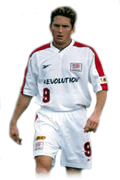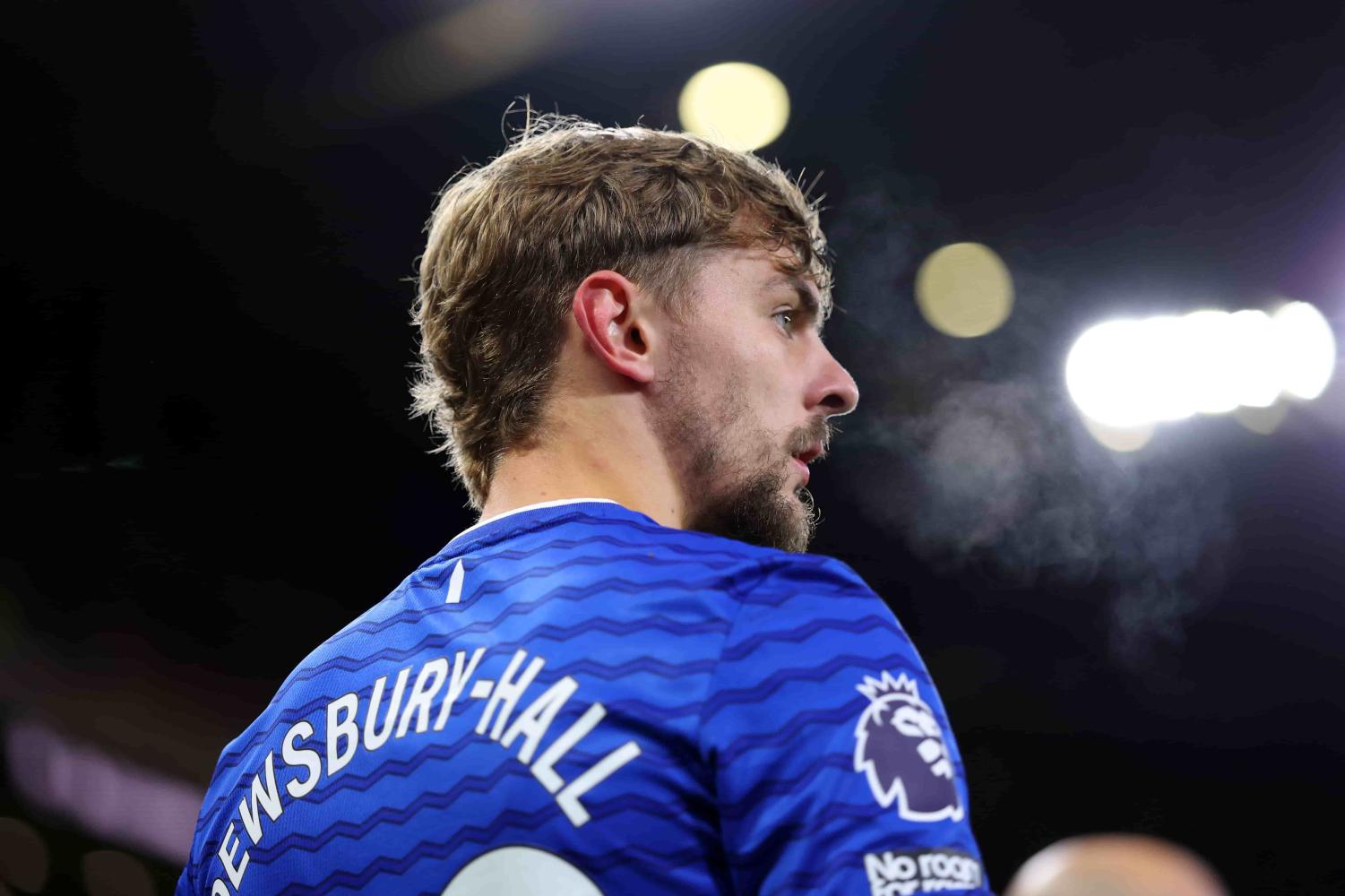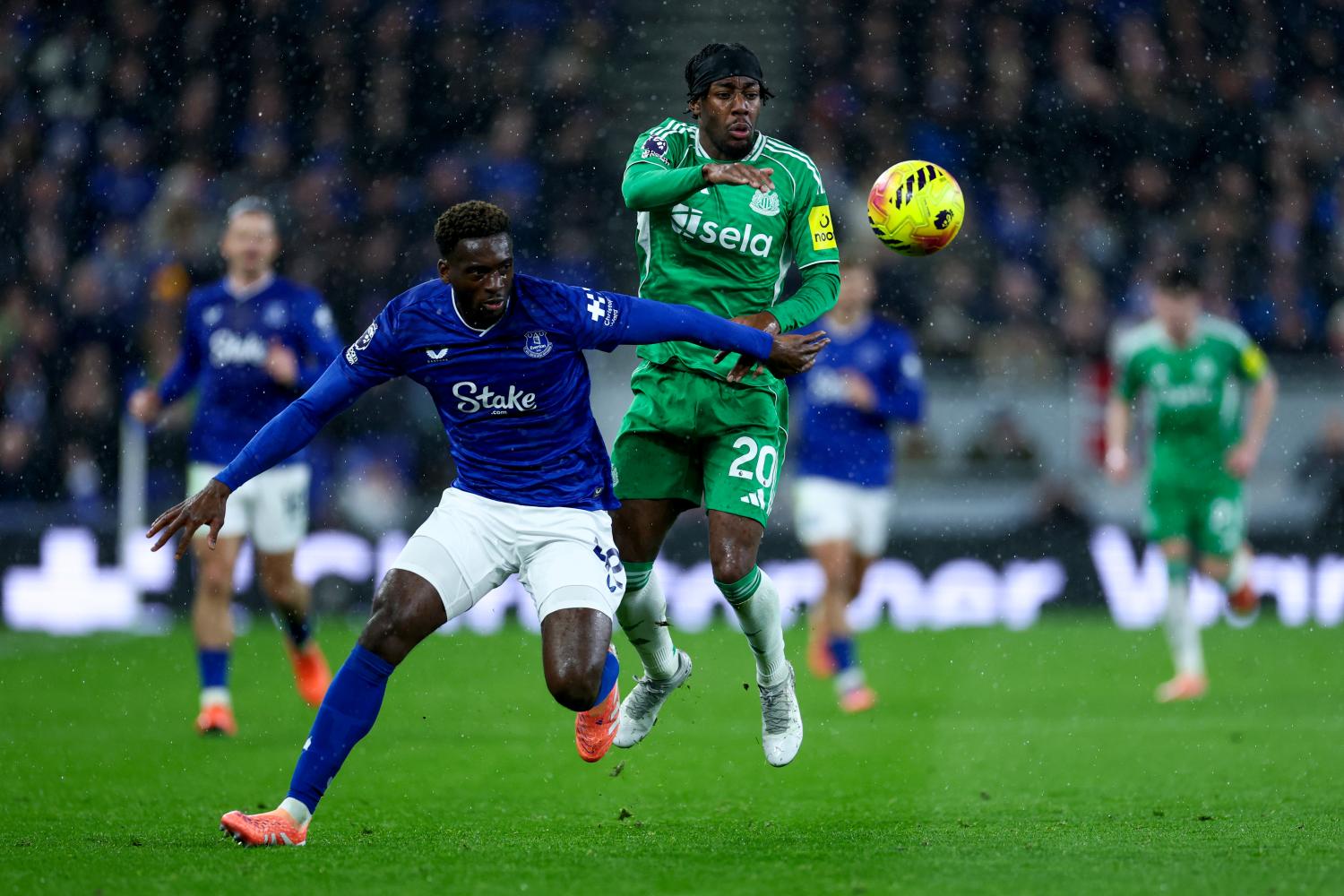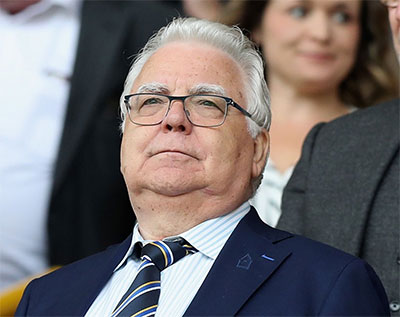Player Feature — Joe-Max Moore
December 20, 2001
He has now scored as many league goals this 2001/02 season as Duncan Ferguson (two), and has done so in a fraction of the playing time. While the Treatment Table Twins are out of action yet again, his realistic competition for an attacking place in the starting line-up at Goodison consists only of Danny Cadamarteri, for whom the term "out in the cold" doesn't come close to describing his standing at the club. Yet Joe-Max Moore cannot get a place in Everton's starting XI because his manager, citing the need for muscle and Moore's similarity to Tomasz Radzinski as dubious reasons, insists on playing Steve Watson in the front two.

It is an argument that has escaped Walter Smith. A sharp decline in goals scored between the time Kevin Campbell was sidelined with a mystery back injury and the home game against Derby County, which finally saw Moore play a full half of football, has seen a rapid rise in the number of vocal critics protesting that strikers score goals, not defenders.
When a miserably inept attacking display against Derby County last week threatened to embarrass an Everton side that was dominant in every other area of the pitch, Smith was left with little choice but to pitch Moore into the action at half time. The 29-year-old forward took just 30 minutes to score the winning goal, but it wasn't enough to convince the manager to deploy him from the start at Leeds United four days later. Steve Watson was again named as Radzinski's partner as Smith planned on a point rather than a first win at Elland Road since the 1950s.
The Blues were 3-0 down when Moore – a second-half substitute who only came on because an injury to Allessandro Pistone required Watson's presence in defence – smashed a lovely left-foot volley past Nigel Martyn to score what looked then to be a consolation goal. In stoppage time, David Weir fired home to make it 3-2 and set up a nervy finish for Leeds. Although Everton weren't able to complete a remarkable and hitherto impossible comeback, it demonstrated what could have been achieved had Smith been positive enough to plump for an attacking line-up from the off.
No one has been or is likely to argue that Moore is the answer to Everton's attacking problems as the club struggles through another injury crisis; nor has his scoring record been stellar. Indeed, when it emerged in December 1999 that Walter Smith had targeted an unknown American international striker, a few eyebrows were raised, while others bemoaned the extent to depths to which Everton's financial desperation had sunk.
 Joe-Max Moore was of average height, had an equally average goalscoring record at Major League Soccer club New England Revolution and was the third
highest scorer in the history of the decidedly average United States national side.
Joe-Max Moore was of average height, had an equally average goalscoring record at Major League Soccer club New England Revolution and was the third
highest scorer in the history of the decidedly average United States national side.
However, the fact that the recommendation came from Richard Gough, who spent two seasons in the MLS with San Jose Clash (now the Earthquakes), went a long way towards reassuring the Everton faithful that this could be a successful acquisition.
Even better, Moore's transfer from New England to Merseyside cost Everton nothing. He arrived on a free transfer but was mindful of the fact that he was the latest in a line of unsuccessful American imports into the Premiership.
Joe-Max's impact at Goodison was almost immediate. Following an inauspicious start to his Everton career, Moore came to life when he fired a crucial last gasp equaliser against Tottenham Hotspur that preserved the Blues' impressive unbeaten home record in the 1999-2000 season.
Having lit the fire, Moore scored five more goals in six weeks in an explosive spell that elevated him from zero to hero in a matter of weeks. He added another two before injury cut short what was already a successful season and remained on the sidelines with a knee complaint. Coincidentally, Everton's season went into decline, a downturn that saw them fall away from the pack of clubs chasing European qualification.
Moore's 2000-01 season was ravaged by injury and when he did regain full fitness, his opportunities were slim and he didn't manage a single goal. That trend looked set to continue this season, but injuries to Campbell and Duncan Ferguson, Cadamarteri's legal situation and Chadwick's youth have presented the case for the American's recall. However, his manager has not shared the view that he is the best interim solution.
You would think that his selection at Sunderland this coming Saturday – a team struggling to recapture the promise of two seasons ago and who consequently languish in the bottom third of the Premiership – would be automatic, but to bet on that is to discount Walter Smith's frustrating propensity for the negative. Joe-Max Moore can be as anonymous and ineffectual as the next Everton player when things are going badly, but has scored crucial goals in the past (not least the brace that sealed his country's qualification for the 2002 World Cup) and has done so already this season. Not only should he be given an extended opportunity in the first team to prove he can not only deputise for Ferguson but actually prove more useful; it would be criminal if he weren't promoted to the first XI.
Beggars can't be choosers – and Smith did sign Moore, after all.
Lyndon Lloyd - December 20, 2001










